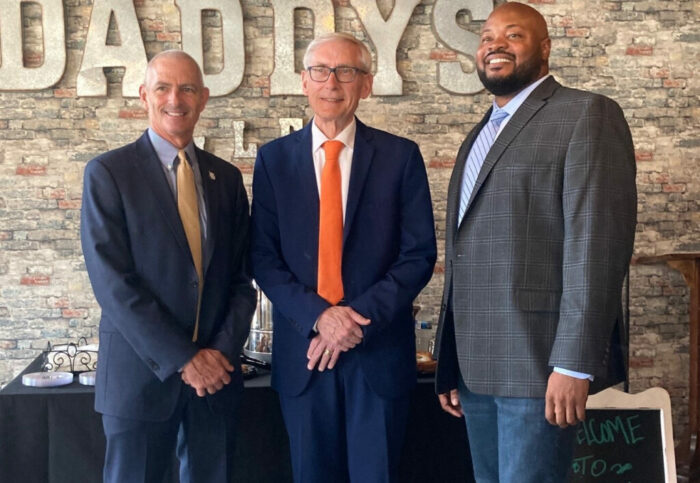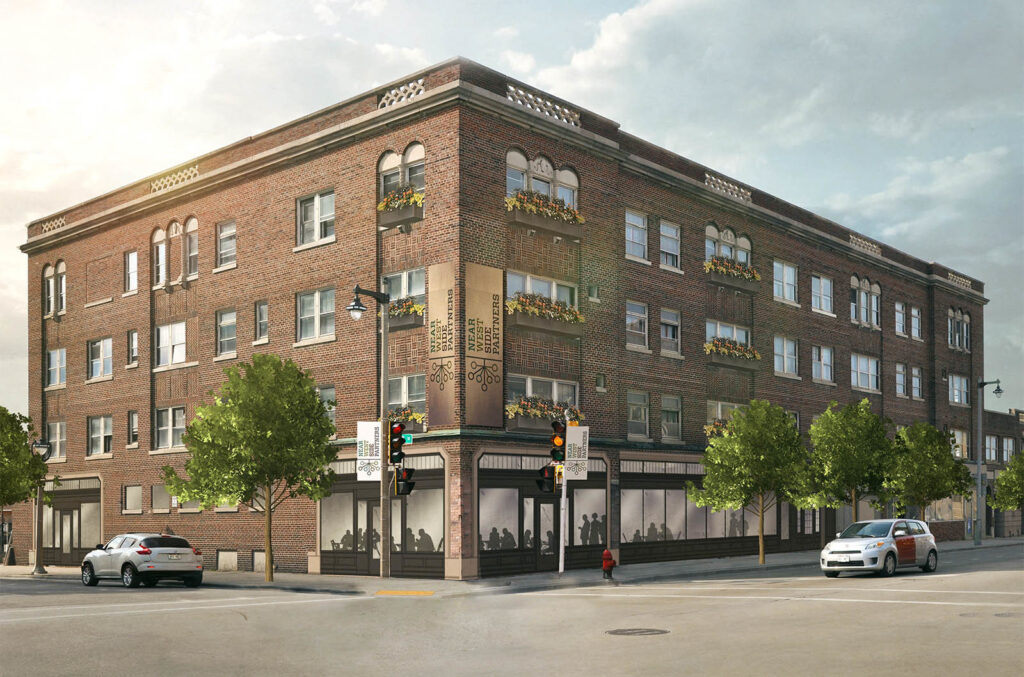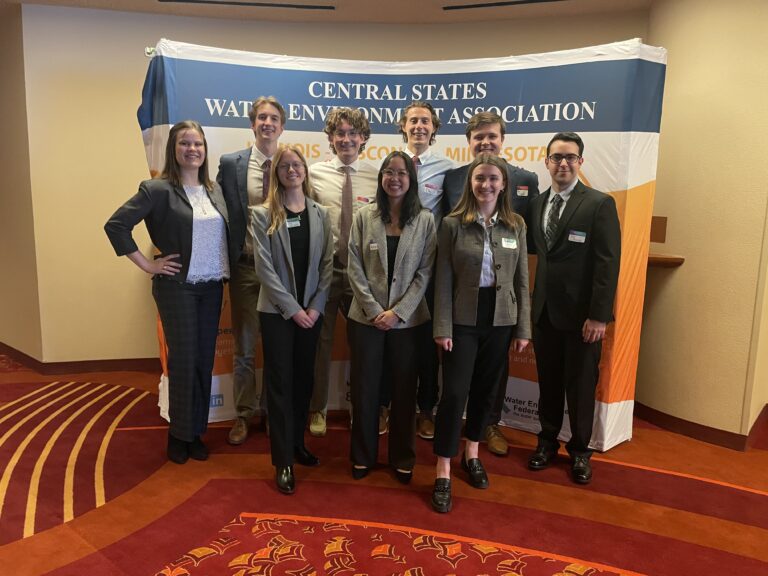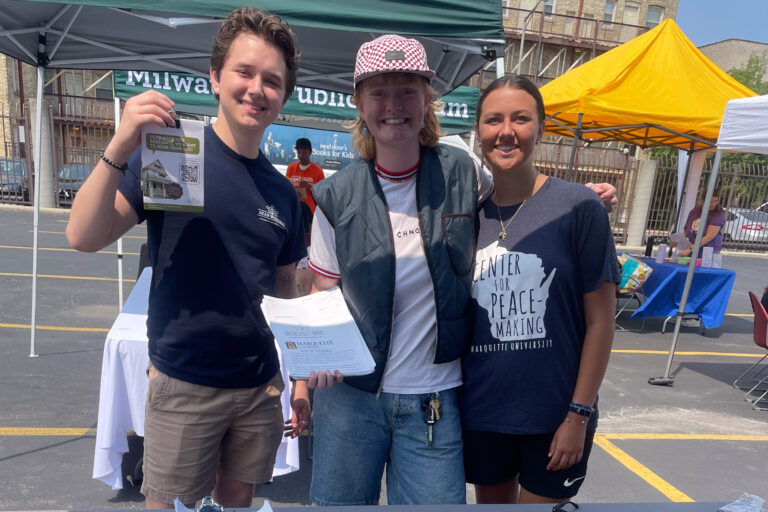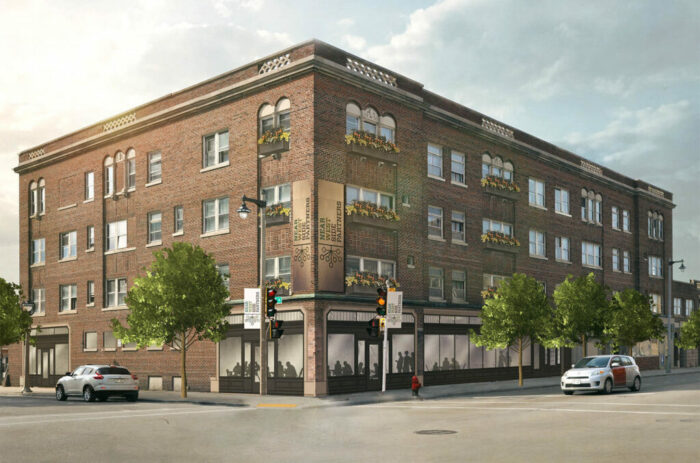
By Shelby Williamson, senior communication specialist in the Office of University Relations at Marquette University
In the summer of 2014, Dr. Michael R. Lovell was taking the helm as the new president of Marquette University.
At the time, residents and longtime anchor businesses were experiencing — and independently trying to operate through — unprecedented increases in crime on Milwaukee’s Near West Side, which stretches from Marquette’s campus in Avenues West all the way to Harley-Davidson’s headquarters at North 38th Street and West Juneau Avenue in the Martin Drive neighborhood.
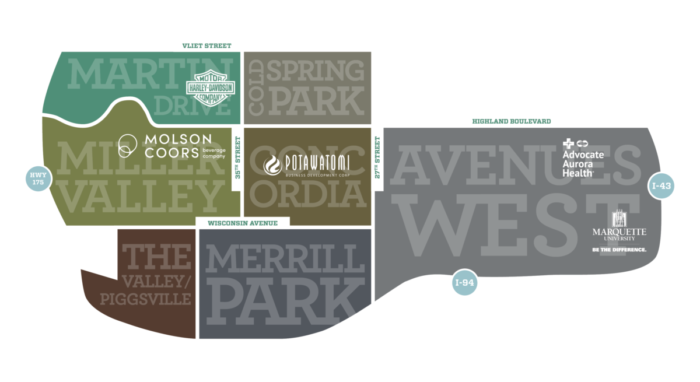
Marquette soon teamed up with a dynamic group of other community stakeholders to form Near West Side Partners (NWSP) — a nonprofit that, through community-engaged research, strives to revitalize and sustain thriving business and residential corridors across the seven neighborhoods of Milwaukee’s Near West Side and make it a great place to live, work, play and stay.
Forming a partnership
During her first meeting with President Lovell, Rana Altenburg, associate vice president of public affairs, recalls the president’s top priority.
“At that initial meeting, he asked me, ‘What is the biggest risk to Marquette and its success?’” Altenburg reflects. “And when I told him it was safety, he immediately suggested we look at any data we had and engage with other neighborhood stakeholders who were experiencing similar challenges.”
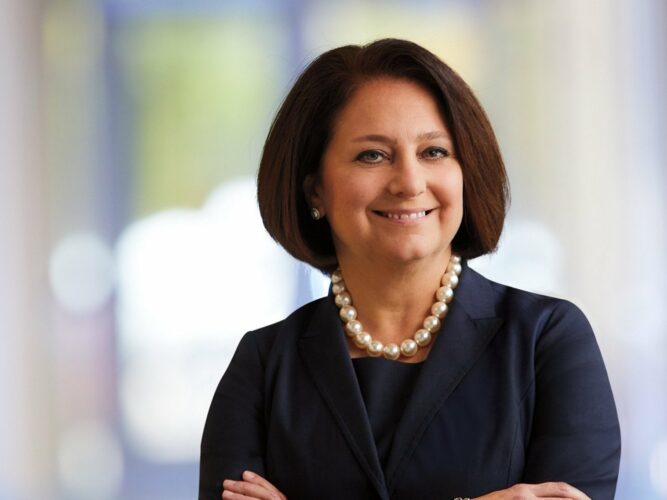
Interns in Marquette’s Office of Public Affairs conducted preliminary research to determine the surrounding areas experiencing the most crime. The data, Altenburg says, revealed that of the more than 100 blocks between the Marquette and Harley-Davidson campuses, only 10% of the blocks were high crime zones.
Just two months prior, a bullet went through the window of a conference room where a crisis management meeting was being held at Harley-Davidson. The bullet was the result of an unrelated domestic dispute that originated in another neighborhood. That event, which thankfully resulted in no physical injuries, had the company wondering about its future in Milwaukee.
The data collected, Altenburg says, served as two reminders. First, if a global company like Harley-Davidson — which provides jobs and reinvests in the community — were to leave the area, it could have a devastating impact on the surrounding neighborhoods. Second, working independently to address these challenges was daunting, so beginning a dialogue between the two institutions who shared similar goals could be game changing. Altenburg connected with key players including Paul Jones, who at the time was the chief legal officer for Harley-Davidson, but now serves as general counsel and vice president for university relations at Marquette.
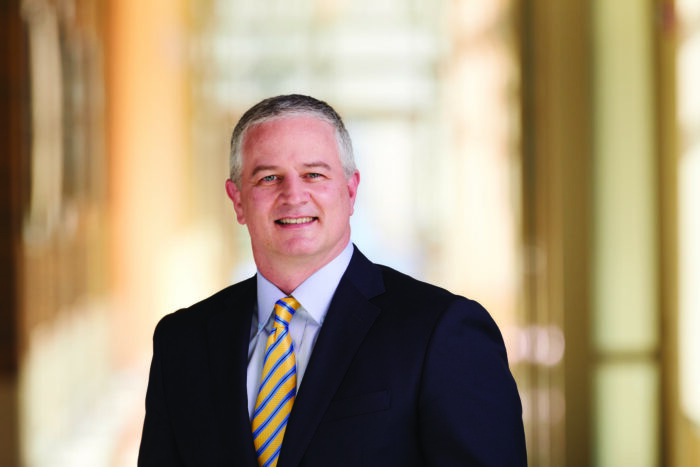
Out of all this, NWSP was born.
Today, the organization’s anchor institutions include Marquette University, Harley-Davidson, Advocate Aurora Health, Molson Coors and Potawatomi Business Development Corporation. Through its efforts, NWSP has launched a crime reduction initiative and it has also helped establish dozen of businesses, assisted in the creation of affordable housing and more.
“We started discussing what we could do differently,” Jones says. “And we decided rather than to individually build our walls taller, we’d like to see what would happen if we opened our gates and engaged with others. What if we harnessed all our strengths to better the greater community? Those conversations brought in other anchor organizations. We started there and we’ve kept going ever since.”
Revving things up, seeing results
Under the leadership of the Marquette University Center for Peacemaking, NWSP launched the Promoting Assets Reducing Crime initiative (PARC) a multidisciplinary and cross-sector effort to improve housing conditions, activate commercial corridors, improve safety and change perceptions of the Near West Side.
The partners worked to evaluate the needs of the NWS neighborhoods and the areas that could serve as great business and housing locations if developed.
Just two years later, NWSP launched Rev-Up MKE, a small business competition that provides start-up entrepreneurs the chance to start or expand their business, and get the support needed to make it successful in the Near West Side through resident engagement and more. Competition finalists get hands-on business training at Marquette’s 707 Hub in preparation for a final live business pitch event. Winners receive significant resources to enhance their new venture, which will go on to be located in a Near West Side storefront.
Marquette alumnus Pete Cooney won the first Rev-Up MKE competition for his ice pops business Pete’s Pops, which is now thriving along West Vliet Street.
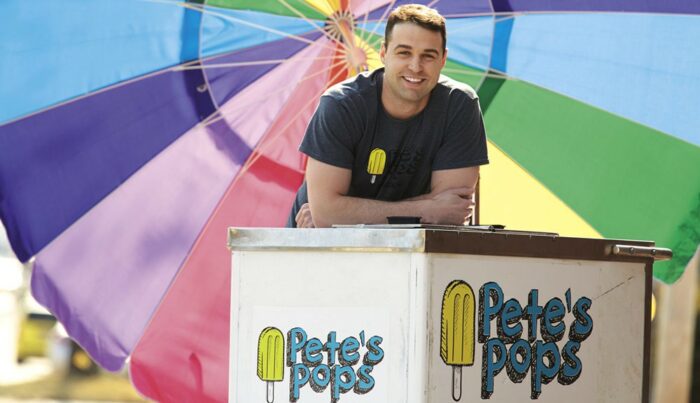
Pete’s Pop’s success supplied momentum for other local entrepreneurs to open new businesses in the Near West Side, which now boasts 350 businesses — many of which are minority-owned — more than 90 nonprofits, nearly 30,000 employees, 13 schools and 15 places of worship.
“The really cool thing is that through Rev-Up, we have been able to strategically connect business owners with property owners and landlords who really want commit to the mission of Near West Side Partners,” says Kelsey Otero, 707 Hub’s director of innovation. “All of this has led to more and more people, small businesses and community leaders seeing this as a community that supports local business ideas; it is a destination for entrepreneurship.”

Through NWSP’s revitalization efforts, Altenburg adds, the organization has addressed many of the issues relating to crime, particularly violent crime.
Center for Peacemaking Director Pat Kennelly says NWSP, through its efforts to make neighborhoods the best they can be, easily positions itself within Marquette’s values and mission.

“When it comes down to it, what Near West Side Partners does is the practical application of peacemaking,” Kennelly says. “At its core, peacemaking is about building relationships so that communities can flourish. A part of that is a sense of safety, economic opportunity, healthy equity, personal agency, access to education. Near West Side Partners takes a holistic approach to foster these qualities for all through different projects and initiatives.”
NWSP has in the last eight years partnered with more than 25 university departments and remains committed to several different initiatives outside of crime reduction and business recruitment, including one dedicated to expanding access to healthy foods.
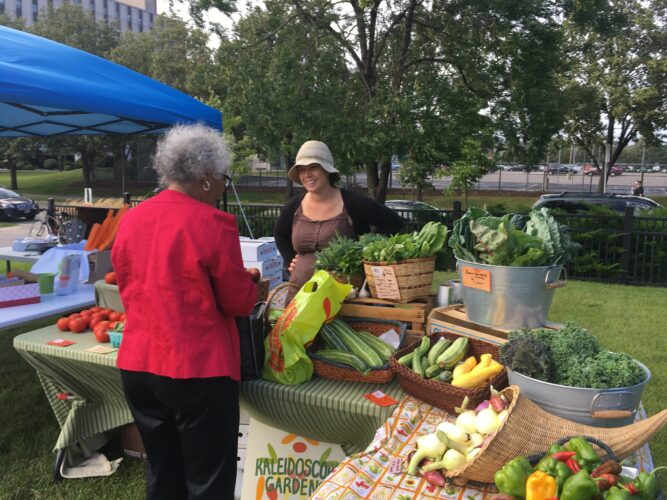
“NWSP continues to be a national model for how anchors can engage their local communities,” says Ketih Stanley, executive director of NWSP. “The partnership here in the Near West Side has produced double digit decreases in crime, led to the recruitment of close to 70 businesses and has empowered residents in the process.”

In 2018, the U.S. Department of Housing and Urban Development awarded NWSP and Marquette a $1.3 million Choice Neighborhoods Initiative grant to create a locally driven, comprehensive strategy to transform the College Court development and the surrounding neighborhood into an inclusive community of opportunity. The grant includes funding for six community improvement Action Activities, which are underway and scheduled for completion in 2022.
“It is my hope that we continue to see more businesses locate to the Near West Side,” Stanley adds. “Simultaneously, I hope that we continue to increase the amount of affordable housing options to attract more families and local employees.”
